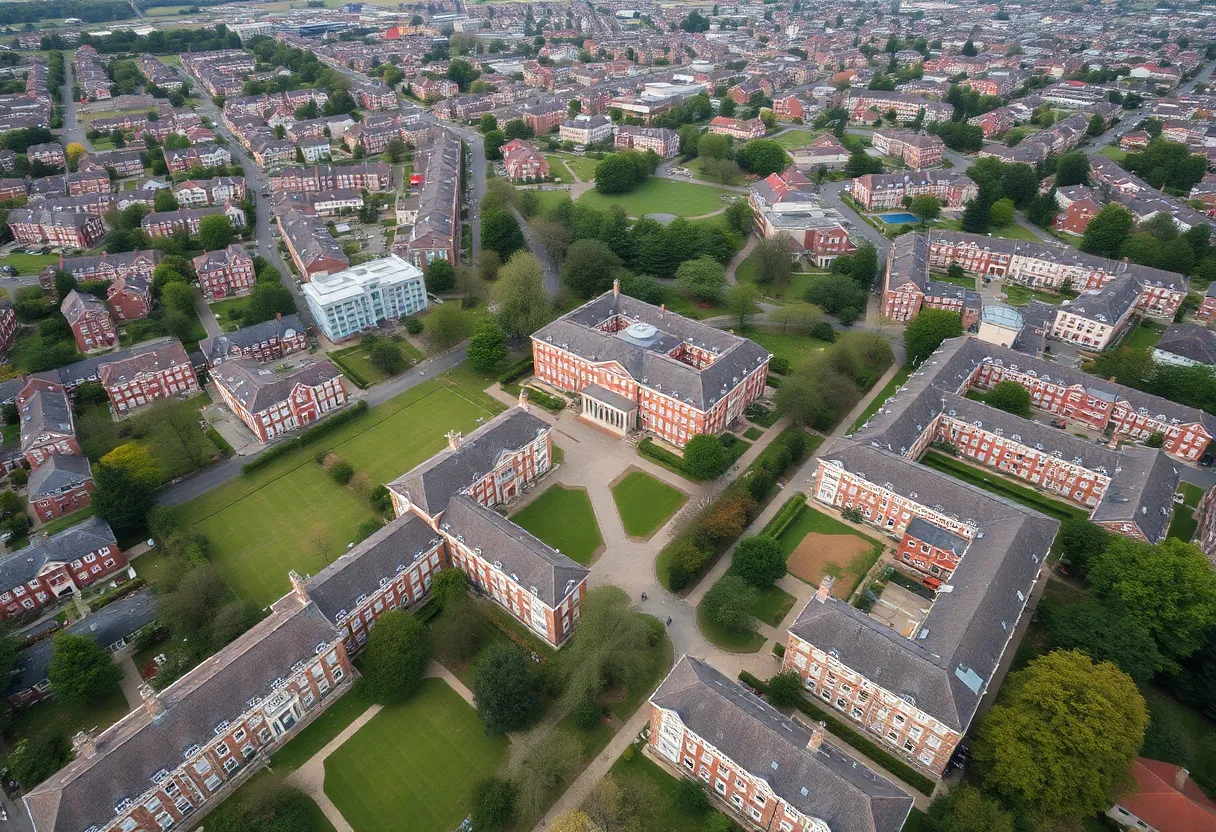News Summary
The University of North Carolina at Asheville (UNCA) faces a significant 25% decline in enrollment over five years, amid a housing crisis in Asheville. While dormitories are full, many students are seeking on-campus housing due to skyrocketing rental prices off-campus. Local leaders are exploring development plans to address housing shortages but face criticism over potential environmental impacts. A public listening session is scheduled for April 16 to engage the community in discussions about the future of student housing and campus development.
Enrollment Challenges at UNCA Amid Housing Woes
Asheville, North Carolina, has been buzzing with news regarding the University of North Carolina at Asheville (UNCA). The college has seen a dramatic drop in enrollment, losing a staggering 25% over the past five years. Local residents and students alike are concerned about what this means for the university and the community.
Understanding the Enrollment Decline
Though current enrollment figures paint a troubling picture, it’s worth noting that UNCA’s dormitories are currently full to the brim. Many students who once lived off-campus are now opting for on-campus housing as Asheville grapples with a housing crisis. The average rent for a student has skyrocketed, with some finding themselves paying over $200 a month simply to secure walkable apartments off-campus. The struggle for affordable housing has led students to seek refuge in dorms, elevating the demand for on-campus living.
The Housing Crisis in Buncombe County
According to a recent report, Buncombe County is in dire need of nearly 8,000 more housing units. Compounding this issue, Hurricane Helene wreaked havoc on existing residential units, further straining the already tight housing market. The dilemma has prompted discussions about how UNCA might assist in alleviating the housing shortage while simultaneously addressing its own enrollment challenges.
The Proposed Development Plans
Leaders at UNCA are brainstorming ways to utilize campus land—potentially as a Millennial Campus—to attract private development. Ideas floated around include turning parts of the campus into affordable workforce and student housing. Other visions encompass educational facilities, entertainment venues, and even sports complexes. Given that UNCA had previously invested $41 million into the Wilma M. Sherrill Center for athletic events, many community members feel that more entertainment and sports facilities might be excessive and not reflective of the current community needs.
Environmental Concerns Surrounding Forest Development
The proposal has ignited debates, particularly around the plans to demolish a beloved campus forest. This area’s preservation is viewed as essential for environmental conservation and as a buffer against potential wildfires. Green spaces are crucial in combating the urban heat island effect, especially in parts of North Asheville.
Alternatives for Development
Interestingly, UNCA has other land options available that wouldn’t harm the forest. There are parcels, such as 10 acres on Broadway and another 9.5 acres at Merrimon and W.T. Weaver Boulevard, which could be tapped for housing development. These sites would satisfy the pressing housing needs without sacrificing important forest areas, which serve as irreplaceable educational and environmental resources.
A Vision for the Future
Several local institutions, including Warren Wilson College, have found that conserving campus land through conservation easements can lead to revenue generation and foster goodwill among the community. Perhaps UNCA could follow a similar path, blending innovative development with sustainable practices.
Community Engagement
To address the community’s concerns and gather input, UNCA is organizing a public listening session on April 16. This event aims to foster an open dialogue about the development plans and the future of student housing in the area. Community members are encouraged to participate, as it’s an opportunity for students, residents, and stakeholders to express their thoughts and desires for a more balanced approach to campus development.
As the discussion unfolds, it becomes clear that visionary leadership is needed to tackle housing needs while preserving cherished green spaces. The future of both student life and community welfare hangs in the balance, and everyone in Asheville seems eager to see how this story develops.
Deeper Dive: News & Info About This Topic
HERE Resources
Asheville Residents Rally to Save Urban Forest Amid Development Plans
Asheville and Winston-Salem: Top Southern Destinations for 2025
UNC Asheville Sees Increase in Spring 2025 Enrollment
Enrollment Soars at North Carolina Universities After Hurricane Helene’s Wrath
Record Enrollment Achieved at UNC System
UNC Asheville Sees Enrollment Surge Amid Hurricane Struggles
UNC Asheville Offers Free Tuition for Hurricane Helene Victims
UNC Asheville and UNC Greensboro Face Budget Cuts
UNCA Chancellor Plans to Cut Academic Programs Due to Financial Crisis
Opinion: Amid budget and staff cuts, should UNCA continue with seemingly exorbitant Ideas Fest?
Additional Resources
- ABC News: North Carolina Wildfires
- News Observer: North Carolina News
- Daily Kos: Asheville Open Thread
- Newsweek: North Carolina Wildfires Map
- Newsweek: Asheville Flooding Record
- Wikipedia: Housing Crisis
- Google Search: UNCA Enrollment Challenges
- Google Scholar: North Carolina Housing Issues
- Google News: North Carolina News







